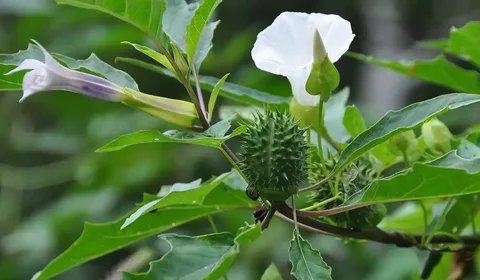When it comes to garden plants, many people are familiar with a wide variety of flowers, herbs, and shrubs that bring beauty and utility to their spaces. However, one plant that often flies under the radar is **Datura stramonium**, commonly known as **Jimsonweed** or **thorn apple**. Although it may be found growing in gardens or even along roadsides, **Datura stramonium** is far more dangerous than it appears. Its **toxic** properties can pose a serious threat to humans, pets, and wildlife alike.
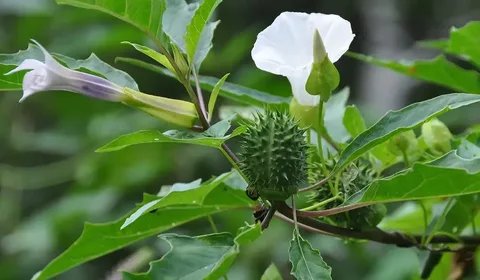
In this article, we’ll explore why **Datura stramonium** is considered hazardous, how it can affect health, and why it’s important to understand the risks associated with this plant.
### What is Datura Stramonium?
**Datura stramonium** is a flowering plant that belongs to the **Solanaceae** family, which also includes tomatoes, potatoes, and eggplants. This plant is characterized by its **large, trumpet-shaped flowers**, which are typically white or purple, and its spiny seed pods. While Datura has been used historically in various cultures for medicinal and spiritual purposes, it is more widely known for its **dangerous toxic properties**.
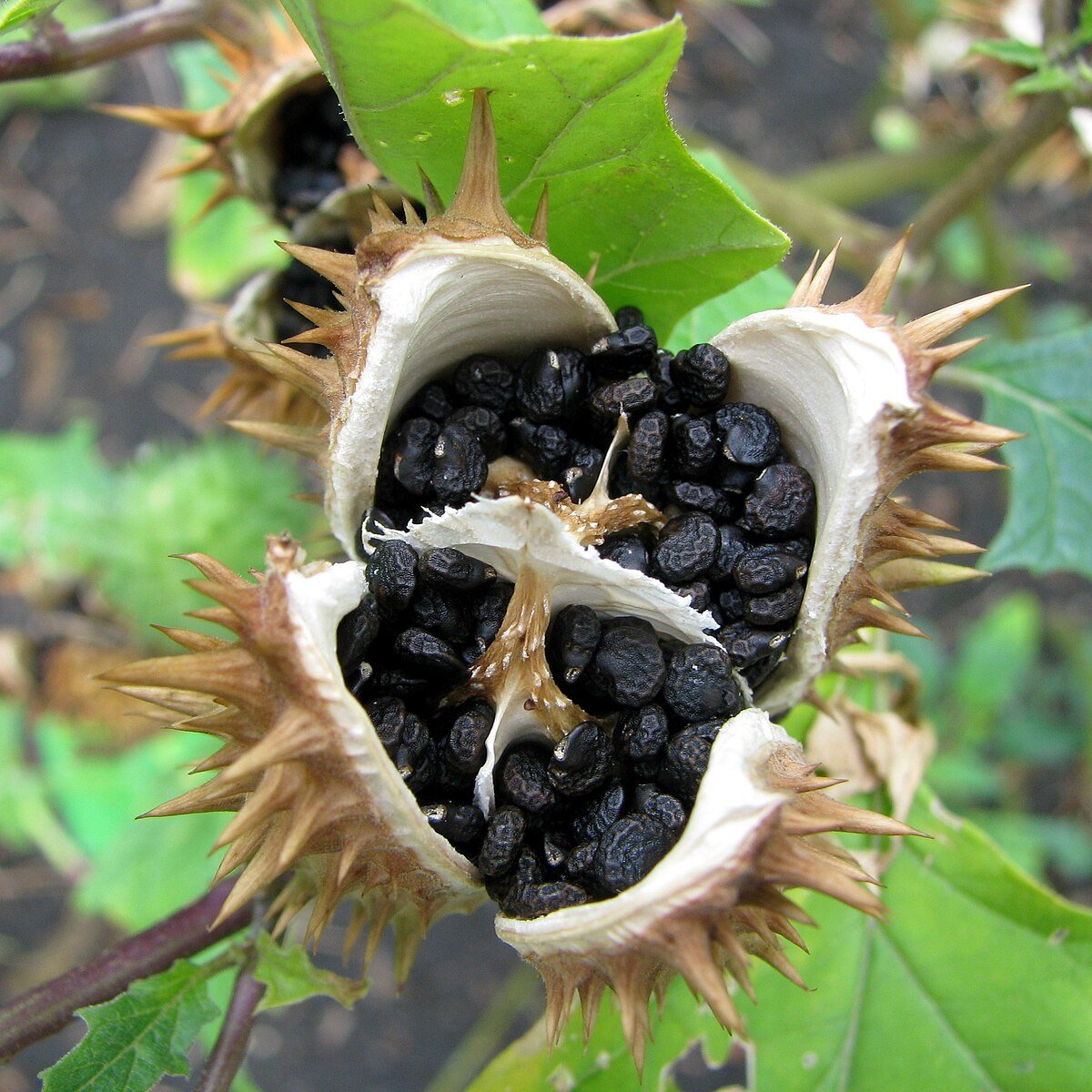
Datura is native to the Americas but has spread globally and is now found in many parts of the world. It can often be found growing in disturbed soil, fields, and gardens. Due to its attractive flowers and ease of growth, many gardeners may unknowingly cultivate it, unaware of the plant’s hazardous nature.
### Why is Datura Stramonium So Hazardous?
**Datura stramonium** contains a range of toxic alkaloids, such as **scopolamine, hyoscyamine**, and **atropine**, all of which can have harmful effects on the human body, especially if consumed in any form. These substances interfere with the **nervous system**, causing a variety of **dangerous symptoms**, ranging from mild to severe, and in some cases, even death. Here’s why it’s considered so hazardous:
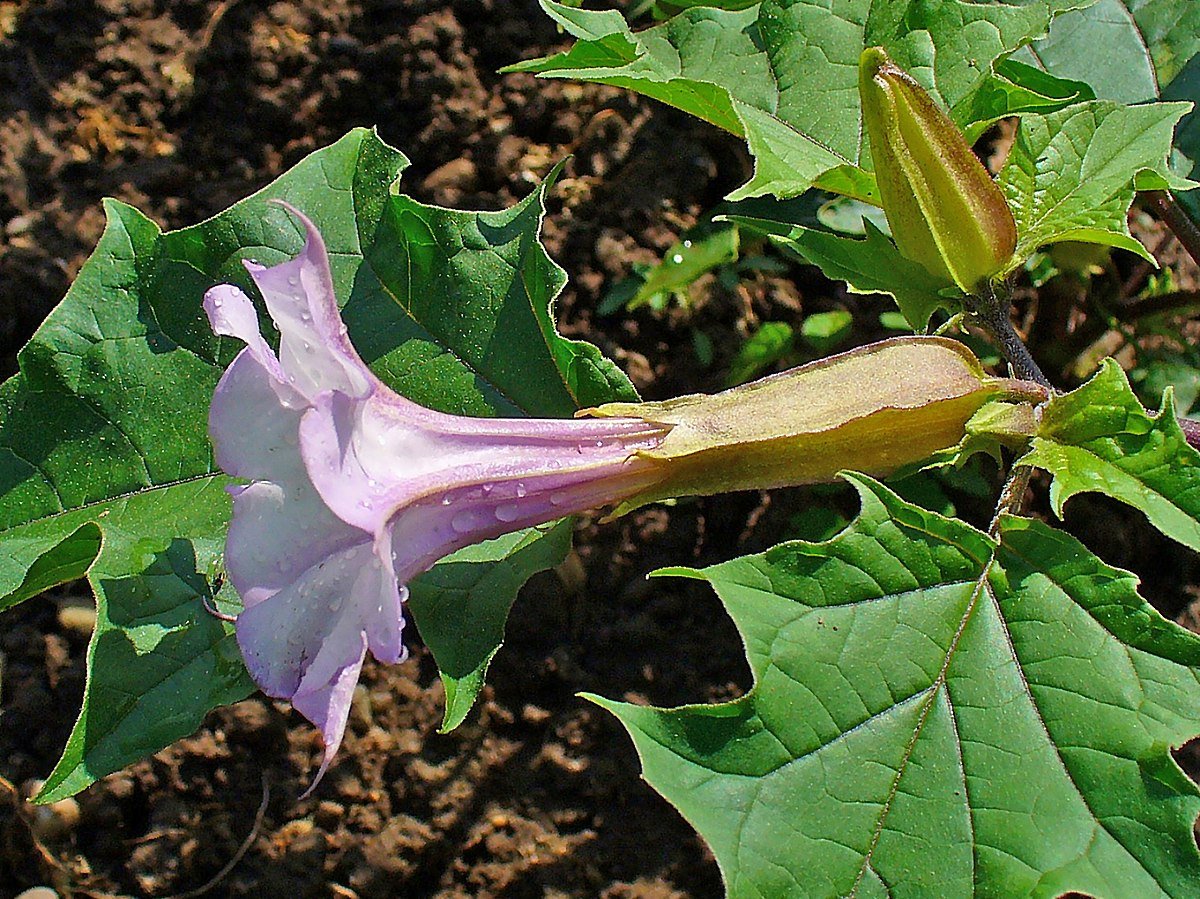
1. **Toxic Alkaloids**: The plant’s leaves, seeds, and flowers all contain **scopolamine**, **hyoscyamine**, and **atropine**, which are **anticholinergic** substances. These alkaloids can cause **delirium**, **hallucinations**, **tachycardia (increased heart rate)**, and **extreme agitation** if ingested.
2. **Risk of Poisoning**: Ingesting any part of the plant can lead to **poisoning**, especially the seeds and flowers, which contain the highest concentrations of toxic compounds. Even small amounts can be enough to cause significant harm. In fact, cases of poisoning from **Datura** are not uncommon, often leading to hospitalization.
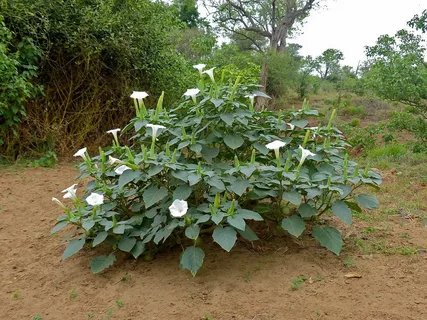
3. **Difficulty in Identification**: One of the main risks associated with **Datura stramonium** is its appearance. The plant’s attractive flowers may lead people to assume that it’s harmless or even beneficial, which can be dangerous for children or pets who may be tempted to touch or consume it. The seeds, which are contained inside spiny pods, may look like harmless, natural objects, but they contain powerful toxins.
4. **Hallucinogenic Effects**: Historically, **Datura stramonium** has been used for its **hallucinogenic properties** in traditional medicine and rituals. However, its effects are unpredictable and can lead to dangerous consequences, including **agitation, confusion, seizures**, and even **death**. It’s incredibly easy to overdose on Datura, and the line between a “safe” dose and a fatal one is very thin.
5. **Danger to Pets and Wildlife**: The toxic compounds in **Datura** don’t just affect humans. Pets, particularly **dogs and cats**, are also at risk. Ingesting the plant’s leaves or seeds can cause severe symptoms in animals, including vomiting, drooling, and even coma. In some cases, **wildlife** such as deer, rabbits, and birds may also be vulnerable to poisoning if they consume parts of the plant.
### Symptoms of Datura Poisoning
If someone ingests any part of **Datura stramonium**, the symptoms of poisoning can vary depending on the amount consumed and the individual’s sensitivity. Common signs of **Datura poisoning** include:
– **Dilated pupils**
– **Dry mouth and throat**
– **Difficulty swallowing or speaking**
– **Increased heart rate**
– **Blurred vision**
– **Confusion and delirium**
– **Hallucinations**
– **Seizures**
– **Fever**
– **Death** (in severe cases)
If poisoning is suspected, immediate medical attention is essential. The effects can escalate quickly, and without proper intervention, the poisoning can be fatal.
### How to Safely Handle Datura Stramonium
While **Datura stramonium** is undeniably hazardous, gardeners and plant enthusiasts can still appreciate its beauty while taking precautions. Here are some tips to ensure that you handle Datura safely:
1. **Avoid Planting Datura in Areas Accessible to Children or Pets**: If you are considering planting Datura, choose a location that is out of reach for children and pets. Its toxic nature makes it unsuitable for gardens that are often visited by small children or animals.
2. **Wear Gloves When Handling the Plant**: If you need to prune or manage Datura, always wear protective gloves. Avoid touching the plant with bare hands, especially the flowers, seeds, and leaves, which contain the highest concentration of toxins.
3. **Educate Others About Its Dangers**: If you have Datura plants in your garden or live near areas where it grows, educate your family, friends, and neighbors about the risks of this plant. Awareness is the key to preventing accidental poisoning.
4. **Proper Disposal**: If you need to dispose of Datura plants, be sure to do so safely. **Burning** the plant is the safest method to destroy it, as this will eliminate the toxins. Never compost or leave the plant in areas where animals or children may come into contact with it.
### Datura Stramonium—A Beautiful but Dangerous Plant
While **Datura stramonium** can add a touch of beauty to gardens with its striking flowers, its **toxic nature** makes it a dangerous plant to grow casually. **Ingesting even small amounts** of this plant can have serious and sometimes fatal consequences. For the safety of your family, pets, and the environment, it’s important to be aware of the dangers of **Datura stramonium** and take the necessary precautions when dealing with it.
If you do choose to grow this plant, handle it with caution and ensure that it’s kept out of reach of children and animals. Remember, a beautiful garden should also be a **safe garden**, where both plants and people can thrive without harm.
